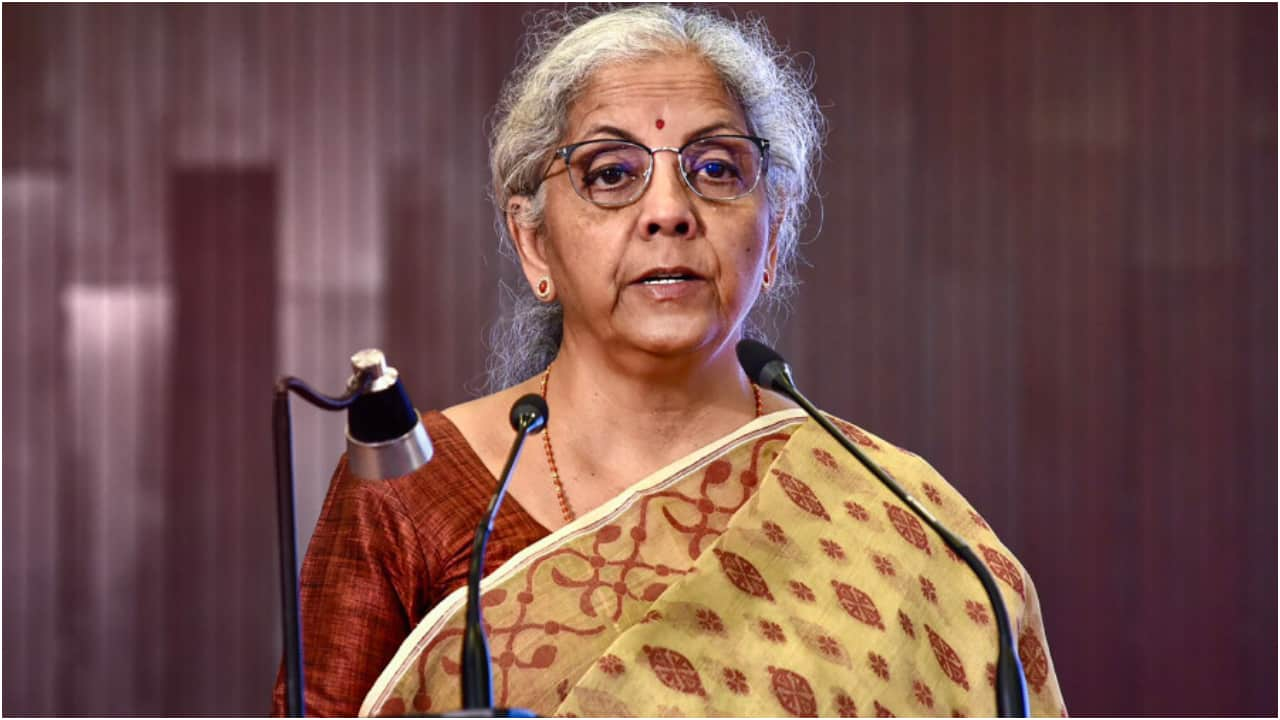




Nirmala Sitharaman
- Exclusive Post-Budget Interview: FM Sitharaman in Conversation with Rahul Joshi
Finance Minister Nirmala Sitharaman speaks to Rahul Joshi, Editor-in-Chief, Network18. in an exclusive post-Budget interview, offering insights into the priorities, policy choices and key announcements of Union Budget 2026. The Finance Minister explains the government’s focus on growth, capital expenditure, tax reforms, employment generation and sector-specific initiatives. She also responds to questions on economic challenges, fiscal discipline and the roadmap ahead. Watch the full conversation for a detailed understanding of the intent and impact of Budget 2026.
- Making compliance easier with GST 2.0 | Beyond Averages
Besides the big rate rationalisation, the GST council also made recommendations to make compliance easier by allowing faster registration for small enterprises and making the refund process easier. How far would these reforms help with ease of doing business in India and what more can the government do push ease of doing business.
- Nirmala Sitharaman LIVE: Finance Minister In An Exclusive Chat With News18 After GST Reforms
In a post-GST reforms special, Finance Minister Nirmala Sitharaman speaks exclusively to News18, breaking down the key impact of India’s GST evolution, its effect on small businesses, state revenues, and long-term economic growth.
- GST 2.0: FM Sitharaman announces GST cuts ahead of festive season, what’s cheaper? Check deets
After the 56th GST Council meeting, Union Finance Minister Nirmala Sitharaman said, "We've reduced the slabs. There shall be only two slabs, and we are also addressing the issues of compensation cess." The minister further added "These reforms have been carried out with a focus on the common man. Every tax on the common man's daily use items has gone through a rigorous review and in most cases the rates have come down drastically... Labour intensive industries have been given a good support. Farmers and the agriculture sector, as well as the health sector, will benefit. Key drivers of the economy will be given prominence."
- Union Budget 2025: What’s Getting Cheaper & Costlier? | Key Customs Duty Changes
The FY25 Union Budget brings major changes in customs duties, impacting businesses and consumers. From cheaper medicines, EVs, and renewables to costlier electronics and textiles, here’s what’s changing. Watch now for a full breakdown!
- Union Budget 2025: Middle-Class & Salaried Indians Welcome Tax Relief, Reforms
The Union Budget 2025 has received a positive response from the middle-class and salaried professionals, with major tax relief up to ₹12 lakh annual income. Entrepreneurs and industry experts weigh in on the impact across sectors, from IT to EV manufacturing. However, concerns over GST rates persist. Watch reactions from Bengaluru, Mumbai, and Patna!
- FM Sitharaman on Budget 2025: How ₹12 Lakh Income Became Tax-Free
In an interview with PTI, Finance Minister Nirmala Sitharaman reveals how the ₹12 lakh tax-free income decision was made. She discusses PM Modi’s vision, challenges in convincing the ministry and boards, and the push for a simpler tax system. Watch now for key insights!
- Budget 2025: Old vs. New Tax Regime – Which One Saves You More? | Explained
Budget 2025 is around the corner, and taxpayers are eagerly waiting for potential income tax changes! Should you stick to the old tax regime with deductions or switch to the new simplified structure? We break down the latest slabs, tax rates, and savings for different income levels. Watch now to find out which regime is best for you!
- Union Budget 2025: How Much Of India’s Budget Goes To Women | N18L
The Indian government has exceeded its gender budget allocation each year post-Covid, with revised spending for FY24 reaching Rs 2.75 lakh crore, 15.5% higher than the original estimate. Since FY21, total spending on gender-focused schemes has amounted to Rs 8.68 lakh crore, surpassing budgeted figures. The government plans to allocate over Rs 3 lakh crore in FY25, marking the highest level of spending on women-centric schemes in over a decade, accounting for 6.8% of total expenditure. This increase includes a planned Rs 300 crore for women empowerment, the largest allocation yet. The government has prioritized funding programs exclusively for women, significantly boosting women-specific initiatives like PMAY and LPG connection schemes.
- Union Budget 2025: Why Was Indira Gandhi’s 1973 Budget Called the ‘Black Budget’?
In 1973, India faced one of its most challenging economic periods, leading to the infamous ‘Black Budget’ presented by Finance Minister Yashwantrao B. Chavan. This budget, marked by a massive fiscal deficit of Rs 550 crore, reflected the economic strain the country was under. But what exactly made this budget so notorious? What were the key policy decisions and how did they shape India’s financial future? In this video, we explore the reasons behind the ‘Black Budget,’ its impact on India’s economy, and its lasting legacy. Watch to learn more about this pivotal moment in India’s financial history.
- Opposition Stages Walk Out Demanding Withdrawal Of GST On Health, Life Insurance Premiums
Opposition members in Lok Sabha slammed the government for not discussing an amendment to the Finance Bill to withdraw the 18% GST levied on medical and life insurance premiums. Finance Minister Nirmala Sitharaman, who piloted the Finance Bill, said any amendment to GST has to be approved by the GST Council. Listen in to what RSP member NK Premchandran had to say about this. #financebill2024 #opposition #gst #healthpremiums #medicalbills #loksabha2024
- LIVE: Open House With Finance Minister Nirmala Sitharaman | Union Budget 2024
Open House With Finance Minister Nirmala Sitharaman. The Union Finance Minister answers all your queries on Union Budget 2024.
- Budget 2024 Decoded: Neelkanth Mishra on Modi 3.0's Impact on Investment Strategies | Exclusive
In this exclusive interview with Moneycontrol, Neelkanth Mishra, Head of Global Research at Axis Capital, discusses the significant shifts in the first Budget under Modi 3.0. Should investors rethink their equity strategies in light of these changes? Tune in to find out.
- Budget 2024: What Are The Pre-Budget Expectations Of The Agriculture Sector?
India is a country where the agriculture sector plays a crucial role in the economy. However, the growth rate of agriculture, which is at 1.4% compared to the overall economic growth rate of 8.2%, is a concern for the farm economy and food security. It requires a significant push for the sector to grow. To achieve this, increased investment and strengthening of agricultural commodity exports are necessary. There are many expectations for the agriculture sector leading up to the 2024 budget. Manisha Gupta provides further explanation.
- Union Budget 2024: How Is The Budget Planned And What Are Its Three Key Formulation Steps?
Amid high expectations from industries and taxpayers, the Union Budget 2024-25 is expected to be tabled by Union Finance Minister Nirmala Sitharaman in the latter half of July. This year's Budget holds major significance for Prime Minister Narendra Modi-led NDA government, which secured a third consecutive victory in the recently concluded 2024 polls. Ahead of the presentation of the first Budget of NDA 3.0, let's take a look at how big a role 'Budget plan' plays in its making.
- Nirmala Sitharaman retains Finance Ministry in Modi 3.0 | Seven women who sworn in as Ministers
In the Modi 3.0 government, seven women were sworn in as ministers. Nirmala Sitharaman retained the Finance Ministry for the second time. Apart from Finance Minister Nirmala Sitharaman Annapurna Devi is the only other women member of the Union Cabinet. She will be the Women and Child Development minister. Who are the other five members of the council of ministers? Watch this video to know more.
- Live: FM Nirmala Sitharaman: India’s future as developed economy in 2047 | CII Business Summit
Finance Minister Nirmala Sitharaman at CII’s Annual Business Summit. She will be delivering the opening plenary address on the role of business in collectively charting a path for India’s future as a developed economy in 2047.
- 'Sleeping partner' cannot answer, says FM Nirmala Sitharaman on high taxes in stock trading
Finance Minister Nirmala Sitharaman was responding to a question on what the government was doing to check "high taxes" levied on stock brokers and real estate transactions Listen to what she said!
- Finance Minister Nirmala Sitharaman On Vision for Indian Financial Market | Viksit Bharat 2047
Finance Minister Nirmala Sitharaman addresses media on Vision for Indian Financial Market and the mission of Viksit Bharat 2047. Watch the interaction
- FM Nirmala Sitharaman: Congress doesn't have a solid proposal | Inheritance tax policy | CNN-News18
FM Nirmala Sitharaman casts her vote in South Bengaluru. She encouraged all senior citizens to vote. While talking about inheritance tax policy to CNN-News18 she added Congress party has lost all ideas, it doesn't have a strong proposal. Watch.






